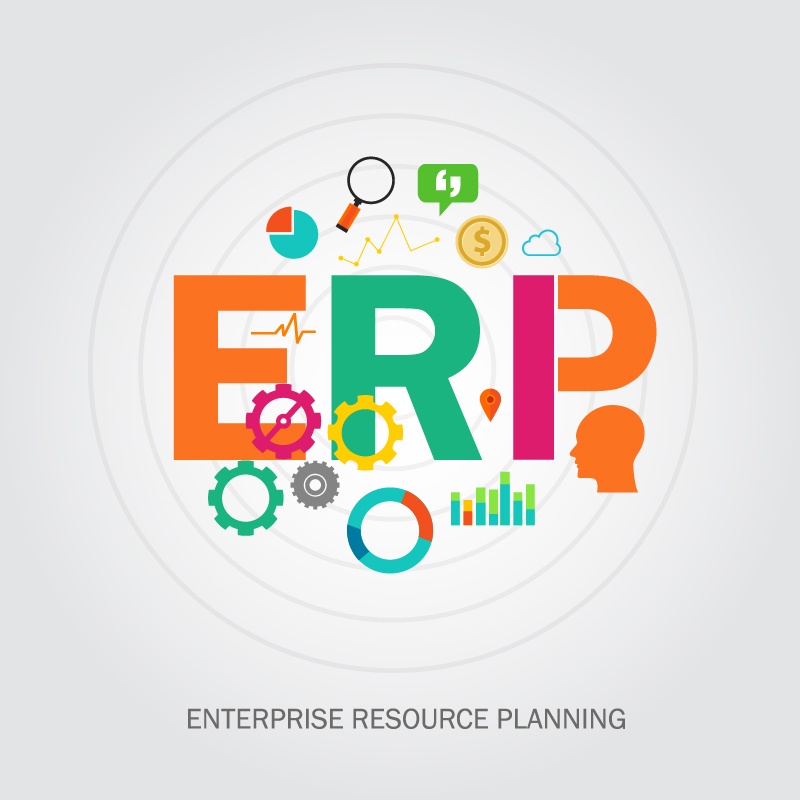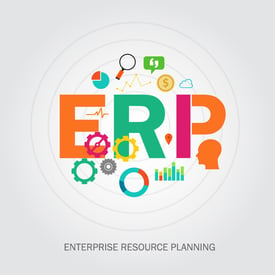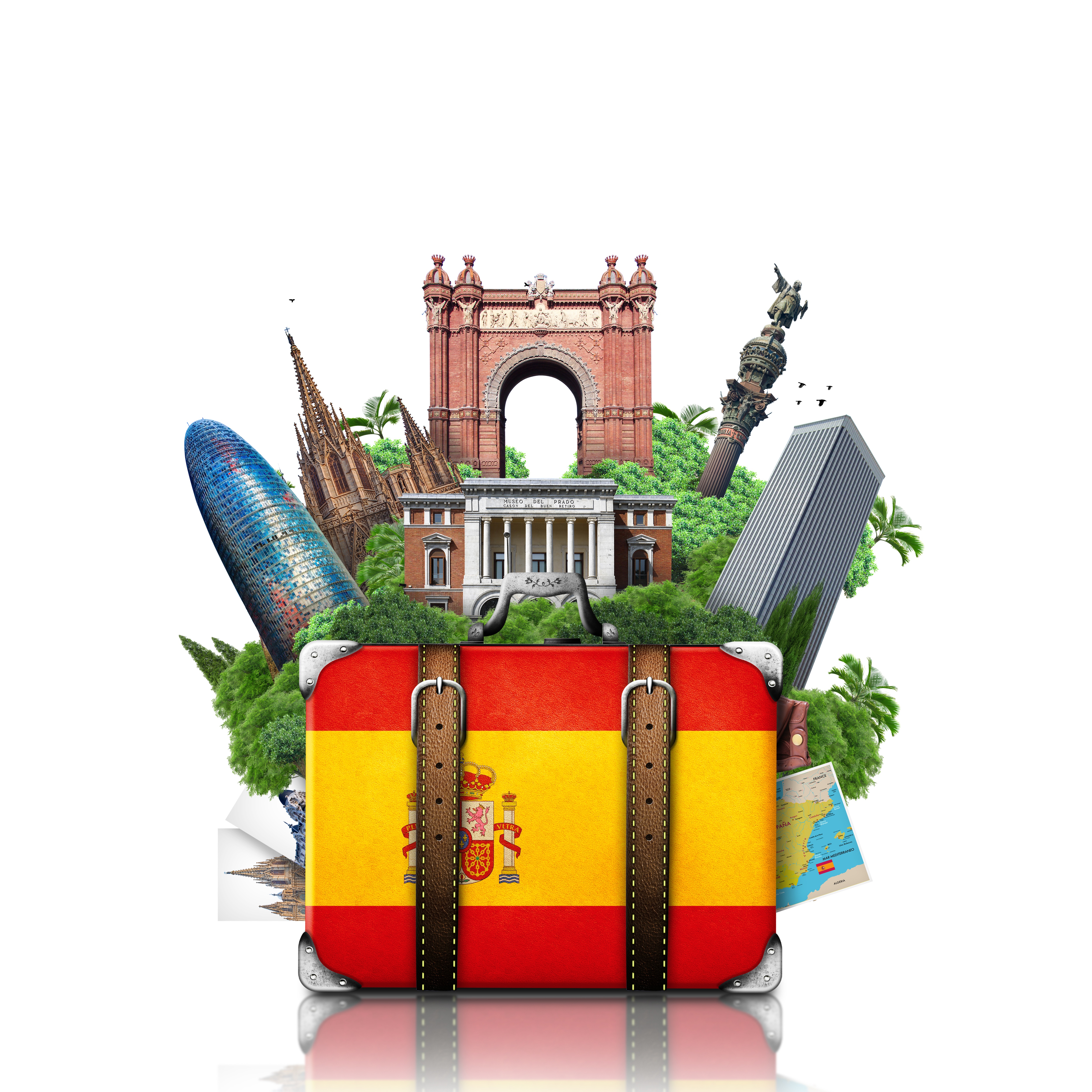The Value Proposition of a Travel ERP System
By David Eddy on Mar 3, 2016 10:03:33 AM

A great deal of the discussion around travel technology involves highly visible customer-facing solutions: travel apps; responsive websites; social media and the like. Operational technology, focused on helping management and staff run the business, tends to get overlooked. A perfect example is enterprise resource planning (ERP) systems specifically developed for the travel industry. An increasing number of travel agencies, tour operators and TMCs are deploying them, but there’s not much discussion about this technology in general travel media. If you aren’t familiar with the Travel ERP topic, you need to be: the trend for these systems isn’t based on hype or superficial value; it’s driven by real process benefits and significant competitive advantages.
Who’s buying these systems? One vendor described recent customers as those with software that generated costs rather than reduced them and couldn’t provide reliable sales forecasts or demand planning numbers. It’s not an exceptional circumstance: successful travel companies founded more than ten years old often find themselves with travel technology that fit this description, because ten years ago travel-specific ERP software for mid-sized companies was just starting to emerge.
Prior to that time, travel companies invested in separate software applications for essential capabilities such as ARC/BSP, GDS, travel accounting and procurement. As those companies grew, so did associated costs – because transferring information between the applications was typically a manual task. Quick, reliable, reporting became problematic for the same reason - manual activities were needed to pull data together in a master spreadsheet. Here are some specific examples to illustrate these points:
Supplier Invoices: a common situation where manual tasks are needed to overcome silos of information is the management of supplier invoices. Automated processes for a supplier invoice, requires integration between a payables application and a procurement system: enabling the invoice amount to be authenticated against supplier pricing tables. When the payables and procurement systems don’t communicate, people have to bridge the gap with manual steps to authorize payment.
Agency Commissions: a very similar situation occurs with billing an agency commission: only by calculating activity levels (e.g. sales revenue; passenger counts) and applying it against a vendor’s commission schedule (flat, tiered or some combination) can the vendor’s commission billing be determined. Unless all associated systems are well integrated, this process will be filled with manual activities.
Product Pricing & Availability: if a travel agency’s software doesn’t integrate with a supplier’s (e.g. tour operator) inventory and distribution management system, the critical actions of confirming pricing and availability must be done by that agency’s staff. This is inefficient in many ways: the person’s time; the opportunity cost – the agent cannot move to the next customer; human errors; and inability to scale – staff becomes a bottleneck when sales increase.
Why Travel ERP Makes Sense
At the heart of ERP is software designed to optimize the flow of transaction, product and operational data between various workflows, locations and geographies. The software is architected as an integrated suite of applications. This suite replaces silos of isolated data and business activities with a common data model and standardized, automated processes - for operational areas formerly supported by diverse software applications. Common data and standard processes create an environment in which operational data can be timely, reliable and consistent. But what does this mean in terms of specific benefits? Here are some examples:
Client & Suppliers: leading Travel ERP systems will use web services technology to integrate with third party software, enabling it to: manage requests, quotes and sales across channels; automatically generate associated travel & fiscal documents; and leverage reporting tools to provide reliable management information.
Workflow Optimization: these systems enable travel businesses; for instance, a travel agency, to standardize and automate their workflows. As an example, invoice and payment information is automatically managed, eliminating the need for manual reconciliation activities. These workflows become highly scalable, and a common data model means management not only has more accurate operational information, it also has more visibility into, and control over, activities taking place in the business.
Reporting: leading systems have powerful reporting tools which, combined with common data across the enterprise, allow managers to; estimate and forecast; organize, plan and control; make highly informed decisions to improve operations, increase revenues and elevate profitability.
Of course, these advantages have to be weighed against the investment and cost of implementation. There’s no question ERP systems began as large and expensive software initiatives, creating a reputation that has been slow to dispel. It’s important that all businesses in the travel industry shake off that impression: it’s not only outdated and incorrect, but it could delay adoption of technology capable of delivering significant competitive advantages.
By way of illustration, dcs plus offers TINA, one of the most advanced web-based travel ERP systems in the world – currently deployed in hundreds of travel agencies across multiple markets. Every one of those agencies is now competing in the marketplace with a highly efficient, information-rich, scalable application suite.
Can your travel company say the same thing? If not, isn’t it time to take a closer look?
- travel technology (60)
- Travel Industry (49)
- travel agency (31)
- travel erp (31)
- travel trends (28)
- travel booking system (23)
- TINA (21)
- travel company (19)
- Tour Operator (18)
- Product updates (17)
- Travel Management Company (17)
- AIDA (15)
- TBS (15)
- Business Travel (14)
- dcs plus news (14)
- tour operator solution (14)
- travel website (14)
- travel erp system (13)
- Mobile App (12)
- Travel App (12)
- mid back office solution (12)
- trends (12)
- Corporate Travel (11)
- Industry Events (11)
- Mobile Technology (11)
- TMC (11)
- travel agents (11)
- erp (10)
- erp system (10)
- Tour Operators (9)
- Travel booking engines (9)
- dcs plus (9)
- online travel agency (9)
- travel agent (9)
- Mobile Bookings (8)
- travel (8)
- travel agencies (8)
- 2017 (7)
- Business Traveler (7)
- Mobile Travel (7)
- travel business (7)
- travel software (7)
- Digital Technology (6)
- Insider (6)
- Millennials (6)
- Online booking systems (6)
- Travel Management Companies (6)
- process automation (6)
- travel companies (6)
- Big Data (5)
- Partners interviews (5)
- Tour Operator Software (5)
- customer retention (5)
- travel agency technology (5)
- Booking engines (4)
- CSBT (4)
- Mobile Device (4)
- Mobile travel apps (4)
- OTAs (4)
- Static databases (4)
- Tour Companies (4)
- Travel Policy (4)
- Travel booking systems (4)
- Travel suppliers (4)
- back office automation (4)
- corporate self booking tool (4)
- millennial travelers (4)
- online travel (4)
- responsive travel website (4)
- technology (4)
- travel website conversion (4)
- 2016 (3)
- Content mapping (3)
- Databases (3)
- Demographics (3)
- Food and Adventure Tourism (3)
- Mobile Apps (3)
- Travel Distribution Channels (3)
- Travel Management Software (3)
- Travel customers (3)
- Travel history (3)
- anniversary (3)
- automated processes (3)
- content matching (3)
- global travel industry (3)
- social media (3)
- travel agency workflow (3)
- travel back office (3)
- travel marketing (3)
- travel process automation (3)
- AI in travel (2)
- Advanced Booking Systems (2)
- B2B Travel Resellers (2)
- Bleisure (2)
- Branding (2)
- Business Process Automation (2)
- Business Travelers (2)
- Customer engagement (2)
- Financial Reporting (2)
- Food Tourism (2)
- Inbound Marketing (2)
- Infographic (2)
- Leisure Travel (2)
- Saas (2)
- Templates (2)
- Travel Costs (2)
- Travel bookings (2)
- Travel start-up (2)
- Travel website abandonment (2)
- WTM 2016 (2)
- abandoned travel bookings (2)
- engagement marketing (2)
- internet booking engine (2)
- millennial traveler (2)
- new travel company (2)
- office (2)
- online reputation management (2)
- online travel reviews (2)
- reporting (2)
- software (2)
- start-up tips (2)
- travel agency management (2)
- travel agency website (2)
- travel experience (2)
- travel mobile app (2)
- travel packages (2)
- travel reservation system (2)
- travel system (2)
- travelers (2)
- web-based travel erp (2)
- 2020 (1)
- 360 Customer View (1)
- Advanced Accommodation Contract Management (1)
- Adventure travelers (1)
- Apps (1)
- B2B Reseller (1)
- B2B Resellers (1)
- B2C (1)
- BI Reporting (1)
- Budget traveler (1)
- Cancellations (1)
- Chat (1)
- Chinese millennial (1)
- Cloud (1)
- Cognitive computing (1)
- Comparison shopping (1)
- Conference (1)
- Contact matching (1)
- Content (1)
- Cruise (1)
- Culinary traveler (1)
- Customer relations (1)
- Digital Innovation (1)
- Digital Natives (1)
- Documents (1)
- Emerging market travelers (1)
- Emerging markets (1)
- Errors (1)
- Experimental travel (1)
- Financial Dashboard (1)
- Import rates (1)
- Instant messaging (1)
- Integrate with Accounting Software (1)
- Internet (1)
- Luxury traveler (1)
- Mobile Transaction (1)
- Mobile payments (1)
- NDC distribution (1)
- Operational Reporting (1)
- Reseller networks (1)
- Resellers (1)
- Response (1)
- Subagents Network (1)
- TINA Academy (1)
- TTE (1)
- Travel Reseller Network (1)
- Travel Revenue Management (1)
- Travel booking problems (1)
- Travel finance reporting (1)
- Travel stats (1)
- WTM (1)
- abandonment (1)
- accomodations (1)
- advanced reporting (1)
- airline direct connect technology (1)
- ancillary services (1)
- cloud computing (1)
- collection (1)
- collection challenges (1)
- common data model (1)
- conversion rates (1)
- corporate mobile app (1)
- cost control (1)
- credo ventures capital invests in dcs plus (1)
- customer reviews (1)
- data analysis (1)
- dcs plus credo investment (1)
- dcs plus credo ventures (1)
- deloitte technology fast 500 EMEA (1)
- digital transformation (1)
- e-invoicing KSA (1)
- email marketing (1)
- email marketing for OTAs (1)
- erp e-invoicing (1)
- lost travel bookings (1)
- modern travel agencies (1)
- networks (1)
- new features (1)
- offers (1)
- online customer review (1)
- online reputation (1)
- online travel agencies (1)
- risk management (1)
- sales (1)
- senior travelers (1)
- shopping baskets (1)
- shopping carts (1)
- social network (1)
- standardized processes (1)
- static content (1)
- travel SaaS (1)
- travel account services (1)
- travel agency customers (1)
- travel agency profitability (1)
- travel analytics (1)
- travel blog (1)
- travel planning (1)
- travel reviews (1)
- travel shopping carts (1)
- travel software for agencies (1)
- travel software system (1)
- travel technology europe (1)
- travlist smart mobile app (1)
- trend (1)
- trusted adviser (1)
- trusted advisor (1)
- upsell functionality (1)
- vouchers (1)
- website traffic (1)
- zatca (1)
Subscribe by email
You May Also Like
These Related Stories

Yes, a Travel Business needs a Travel ERP Solution

Innovative Tour Operator Software drives Sales & Profits (does yours?)


No Comments Yet
Let us know what you think